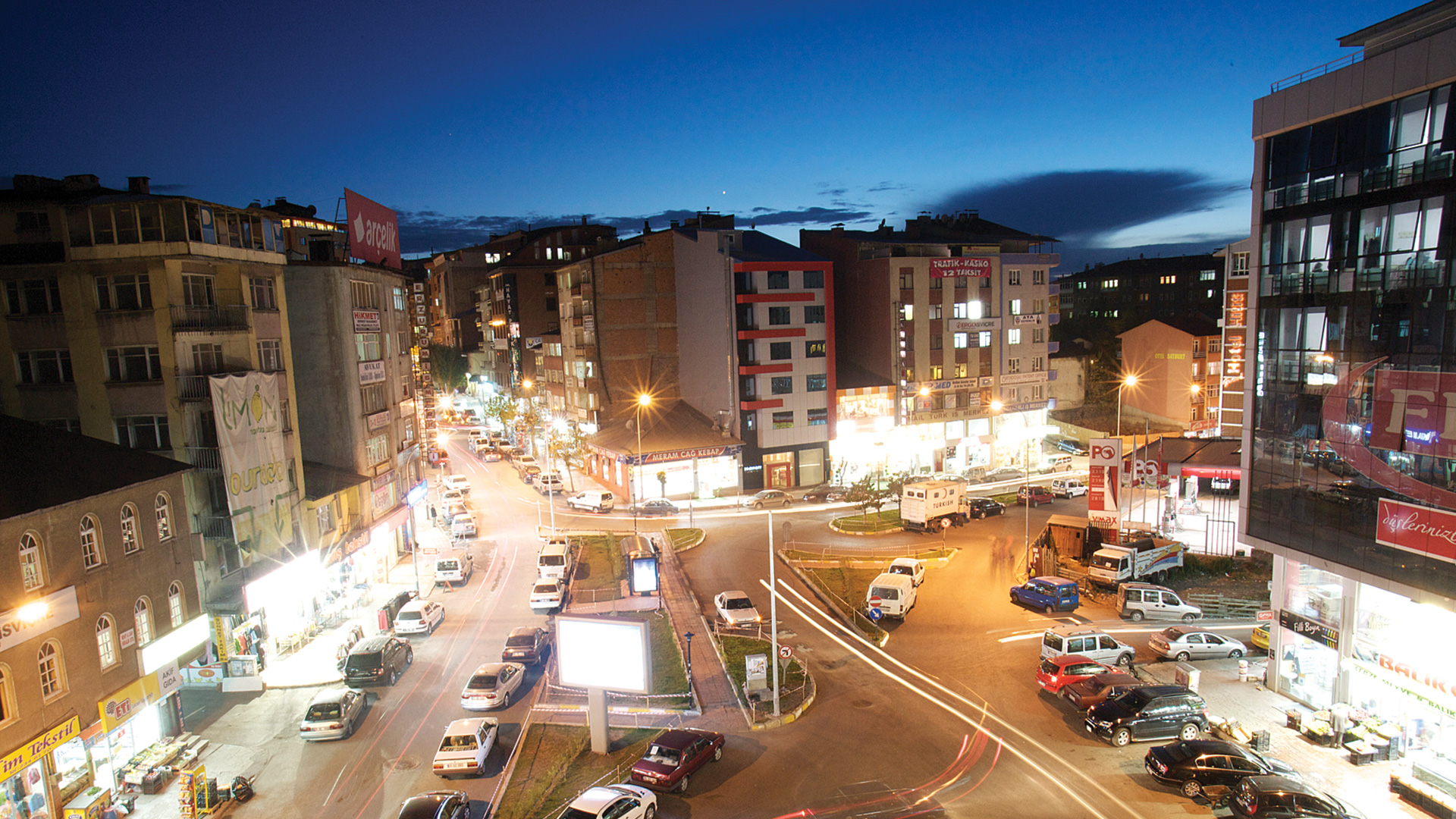As a young adult Didxali De Leon* devoured missionary stories. Her heart resonated with the passion of Hudson Taylor for the Chinese, with the determination of Elisabeth Elliot in the jungles of Ecuador.
But the thought that Didxali could be a missionary seemed more like a fantasy than a calling. Her church in Latin America never talked about sending missionaries to far-flung places. They didn’t have the vision or the resources.

Praise God that He is calling believers from Latin America to the streets of Central Asia.
And yet Didxali’s longing remained.
“As I started to read more workers’ biographies, I realized that I wanted to have the same life. I was thinking of Africa in the beginning, but unfortunately my pastor didn’t have a vision for sending people,” Didxali remembers.
Not seeing a clear path to overseas work, Didxali attended her church’s Bible institute for theological training. After graduation she began serving among indigenous peoples in her home country. At age 30 she met and married her husband, who also served in full-time ministry.
As a couple they both sensed the Lord calling them to serve abroad. Through a friend who worked to train Latin Americans for mission work, they became acquainted with the International Mission Board and with an IMB team leader serving in Central Asia.
Didxali considers it a “God-coincidence” that she and her husband had already gotten to know someone in their city who spoke Russian, a trade language used in parts of Central Asia. When they met with the IMB team leader, Didxali and her husband knew that God was showing them a path forward.
With the support of four churches in their home country, two years ago the De Leon family began serving side-by-side with IMB missionaries on a church-planting team. While they are not sent out or supported financially by the IMB, Didxali and her husband have offered their gifts, backgrounds and training as part of a strategic partnership.
The IMB calls them Global Missionary Partners, or GMPs. With a goal to mobilize 500 GMPs by 2025, IMB leaders have stated: “We are looking to partner, not take over their responsibility to be the sending church. God gave the Great Commission to His church. Not only the North American church, but churches all over the world.”
“God gave the Great Commission to His church. Not only the North American church, but churches all over the world.”
Didxali says the IMB has been a good partner, with a rich history and experience that helps the De Leons think through their own strategies.
“The organization has a lot of things that need to be copied, but we enjoy having the freedom to pursue the ministry God has given us. We don’t feel pressure to conform to a certain model,” Didxali says.
The De Leon family hopes that more Latin Americans will get a vision to serve among unreached peoples. They admit that they have experienced unique challenges, but they also bring unique gifts.
“We have similarities with the local culture, but also we are very different. We have similarities with U.S. culture, but also differences. So I think just being under God’s Spirit, it is possible; only because we are Christian and because we know our calling is to be here, it’s not too difficult,” Didxali says.
The De Leons see God’s goodness in gifting them with traditions and experiences that are easy bridges for engaging Central Asians.
“We love to have guests almost every day,” she says. “For us, it’s not difficult to sit a long time around the table, though the cuisine is completely different. But the relationships between the relatives, the importance of being together—they don’t ask if they can come visit; they just come.”
Economically, Latin Americans have a lot in common with Central Asians as well.
“For us it’s not difficult to live with the basics. We aren’t used to having a lot of things or resources. This is a good point in Latin people living here.”
Didxali says another Hispanic family is currently raising support in hopes of joining them.
“We would like to have more Latin American people here. I think we can do a good job. Also, we miss the Spanish community and culture—the fellowship.”
But she is quick to add: “We have a very good team with (the U.S. workers); we have a really good connection with them. We are trying to understand their views, and they are trying, too, to understand us.”
Didxali asks Christians to pray that she and her husband will have wisdom as they raise their children in a complex mix of family, team and local cultures. Pray that their children will choose to follow Jesus and that they will understand why they are living in a culture not their own.
She also asks for prayer for more Latin Americans to join them in working among the unreached in Central Asia.
“We can feel like it’s not possible, like this work is only for U.S. people—we don’t have enough money; we don’t have enough knowledge; we don’t have enough English; we don’t have enough this, this, this… but I would like to ask you to pray for Latin American Christians to believe that we have the same God. And all the things we are doing is only because God wants us to, only because He called us, only because He prepared us.
“All the things we are doing is only because God wants us to, only because He called us, only because He prepared us.”

